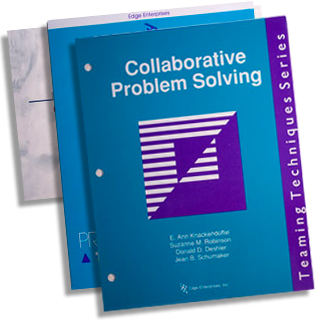
John may be enrolled in 7th grade science, but how is he going to succeed when he can only read at the second grade level? By using the “Teaming Techniques,” educators and other adults can support students like John, both academically and socially within the general education curriculum.
For educators working with other educators, one of the first steps is to develop a collaborative relationship. Thus, using the Collaborative Problem Solving program, special education and general education teachers can communicate with one another, solve problems, make decisions, and create plans to help students like John succeed in inclusive classrooms.
Family members and educators can also team together to support students by using the Progress Program. In this approach, students carry a modified report card between home and school. At school, teachers check the card and note rules broken, rules obeyed, and academic progress. At home, parents review the card, praise improved performance, and provide home privileges based on the report card.
Finally, personal problems that may not even relate to school may affect students like John. “My brother was arrested, and he was helping me study for my tests.” “My dad won’t let me try out for football.” “My family needs money, and I can’t find a job.” Problems like these can interfere with learning. Surface Counseling is a simple procedure educators and other adults can use when students approach them with such problems.
- Display 15 Products per page

